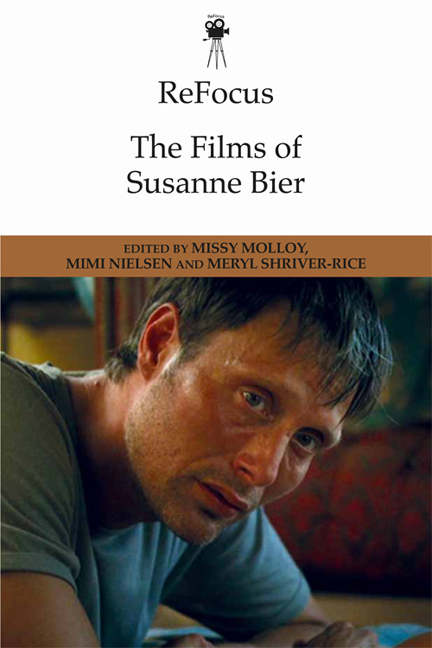Book contents
- Frontmatter
- Contents
- List of Figures
- Notes on Contributors
- Foreword
- Introduction: Susanne Bier's Boundary-Crossing Screen Authorship
- Part 1 Generic and Industrial Fluidity
- Part 2 Negotiating Identity
- Part 3 Authorship and Aesthetics
- Part 4 Transnational Reach
- Postscript: A Conversation with Susanne Bier
- Filmography of Susanne Bier
- Acknowledgments
- Index
Foreword
Published online by Cambridge University Press: 01 May 2021
- Frontmatter
- Contents
- List of Figures
- Notes on Contributors
- Foreword
- Introduction: Susanne Bier's Boundary-Crossing Screen Authorship
- Part 1 Generic and Industrial Fluidity
- Part 2 Negotiating Identity
- Part 3 Authorship and Aesthetics
- Part 4 Transnational Reach
- Postscript: A Conversation with Susanne Bier
- Filmography of Susanne Bier
- Acknowledgments
- Index
Summary
Denmark's (and for that matter Scandinavia’s) most significant contributors to cinema have been enigmatic, multifaceted, and often peripatetic artists. Carl Th. Dreyer made films in Denmark, Norway, Germany, and France. After the premiere of Day of Wrath (Vredens dag, 1943), he pitched a remake of the film, “transplanted to an American milieu,” to Louis B. Mayer of M.G.M. (see Wrigley 2015). While the remake never happened, perhaps it might be seen as one layer in the palimpsest of Lars von Trier's Dogville (2003), which reimagines Day of Wrath's tortured woman (Rugg 2016) through the mythology of Hollywood. While von Trier famously has not gone to Hollywood, he has made films with international casts, including Hollywood stars, and Hollywood's myths and forms have long haunted his films. Dreyer and von Trier's Hollywood fixations have been realized by the woman who is arguably Denmark's most significant auteur of the twenty-first century, Susanne Bier. Yet as von Trier struggled, Bier became more prolific, made richer films, and received such recognition as an Academy Award, which she won for In a Better World (Hævnen, 2010). With Dreyer and von Trier she shares a body of work made in numerous countries, with multilingual casts and multinational financing. Moreover, she is a woman director who has made films, often focusing on traumatized, suffering men, in a male-centered industry. And despite her reputation for making melodramatic films, Bier revises and recombines genres to make films that are emotionally moving, aesthetically rich, and ethically thought-provoking. Despite her similarity to her cinematic colleagues, the many dimensions of her cinema, and her connections to and revisions of Scandinavian auteur cinema and its traditions, Bier has received scant attention from scholars.
ReFocus: The Films of Susanne Bier corrects this inattention by bringing together a roster of film scholars that tease out the multiple and often contradictory dimensions of Bier's films: their shifting relationship to genre, Bier's identity as a filmmaker, her status as a film author, and the transnational character of the production and aesthetics of the films. The result is a rich introduction to her work and its contexts that will serve any reader interested in Bier's films.
- Type
- Chapter
- Information
- ReFocus: The Films of Susanne Bier , pp. xv - xviPublisher: Edinburgh University PressPrint publication year: 2018



